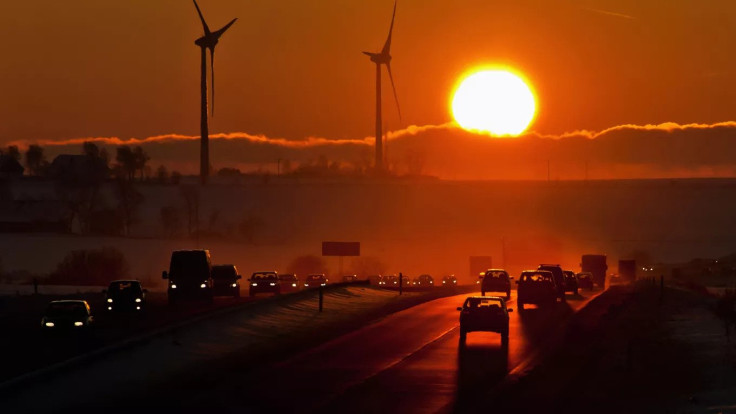2023 Set To Become The Hottest Year On Record, Warn Scientists
Scientists reportedly believe that the effects of El Niño have also contributed to the increase in heat.

The year 2023 is set to become the hottest year on record after October broke all temperature records, scientists have warned.
The experts at the Copernicus European Earth Observation Agency said that the global temperatures in October 2023 surpassed the previous record set in October 2019 by 0.4°C.
"We can say with near certainty that 2023 will be the warmest year on record, and is currently 1.43°C above the pre-industrial average," said Samantha Burgess, the deputy director of the Copernicus Climate Change Service, per The Guardian.
Scientists reportedly believe that the effects of El Niño and the ongoing release of warming gases have contributed to the increase in heat.
El Niño is the natural warming of parts of the Pacific Ocean that changes weather worldwide. It is associated with an increase in temperature globally. The hottest year in recorded history, 2016, was an El Niño year.
From North America to Europe and Asia, temperatures have reached new heights. Heatwaves and wildfires have been reported across the globe. No part of the world has been left untouched by the effects of global warming.
Drought, floods, wildfires, extreme temperatures, and marine heatwaves are all being reported simultaneously in different parts of the world. Two million people have already been killed by extreme weather, climate, and water-related events since 1970.
Earth just recorded its hottest October on record.
— Scott Duncan (@ScottDuncanWX) November 6, 2023
2023 is well on track to be the hottest year globally on record. pic.twitter.com/AHEkTDkmgx
It is said that Earth's average temperature will hit the 1.5ºC threshold around 2030, a decade earlier than projected only three years ago. The UN has urged the world to urgently take steps to stop global warming.
In fact, the UN chief has even warned that "the era of global boiling has arrived".
"Climate change is here. It is terrifying. And it is just the beginning," he added. "It is still possible to limit global temperature rise to 1.5°C [above pre-industrial levels], and avoid the very worst of climate change. But only with dramatic, immediate climate action," he said at a press conference earlier this year.
Do we really need to worry?
Climate change is causing record-setting temperatures to become more frequent. The UN's Intergovernmental Panel on Climate Change indicates that crossing the 1.5°C threshold risks unleashing far more severe climate change impacts, including more frequent and severe droughts, heatwaves, and rainfall.
The United Nations has time and again warned against the dangerous consequences of increasing global temperatures. The organisation now believes that "climate change is out of control".
The planet is already 1.2°C warmer than in pre-industrial times. In order to limit global warming to 1.5 °C, greenhouse gas emissions must peak before 2025 at the latest and decline by 43 per cent by 2030.
A warming of 2°C is the official limit for the end of the century targeted in the Paris Agreement. Climate change is causing record-setting temperatures to become more frequent. It has become the biggest threat to the survival of humanity.
Researchers have warned that frequent heatwaves pose a threat to global food security. They have warned of an increasing risk of crop failure if steps are not taken immediately.
A study claimed that by 2050, more than 500,000 people a year worldwide will die from the effects of climate change on food supplies. The study published in The Lancet shows that humans will be forced to eat around 3 per cent less food every day in 2050, a change that will have life-threatening consequences.
The researchers said that even under the most optimistic of scenarios, humans will die from climate change-related effects.
A study by the NGO International Rescue Committee (IRC) also made similar claims and added that climate change will accelerate humanitarian crises around the world in 2023.
© Copyright IBTimes 2025. All rights reserved.






















